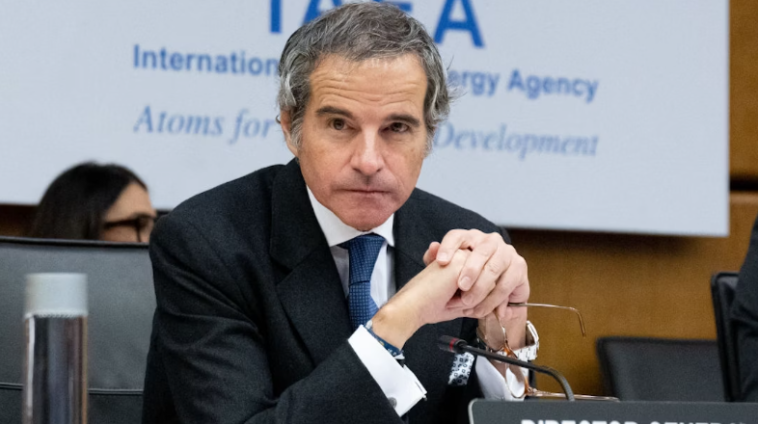Rafael Grossi, Director General of the International Atomic Energy Agency (IAEA), has issued a stark warning about Iran’s nuclear capabilities, stating that the country is now “practically at the same level as nuclear-armed states.” This declaration comes as Iran continues to expand its uranium enrichment activities, reaching levels of 60% purity—just short of the 90% threshold needed for weapons-grade material.
Escalating Nuclear Enrichment
Under the 2015 Joint Comprehensive Plan of Action (JCPOA), Iran’s uranium enrichment was capped at 3.68% purity. However, following the U.S. withdrawal from the deal in 2018 and the subsequent breakdown of compliance by Iran, the nation has dramatically escalated its enrichment efforts. The IAEA’s latest reports reveal that Iran now holds a stockpile of 182.3 kilograms of uranium enriched to 60%. This is a significant leap and raises concerns that the country could quickly produce weapons-grade material if it chose to do so.
According to the Office of the United States Director of National Intelligence, Iran has amassed enough fissile material to build more than a dozen nuclear weapons. While no evidence has surfaced that Iran is actively weaponizing its enriched uranium, its capabilities have reached a critical point that is drawing international alarm.
Increased Monitoring at Fordow
In response to global concerns, the IAEA has increased oversight of Iran’s nuclear facilities. One major development is Iran’s agreement to allow tougher inspections at the Fordow uranium enrichment facility. These measures include more frequent inspections and enhanced monitoring protocols, which aim to ensure greater transparency.
While this step has been welcomed as a move toward accountability, many remain skeptical of Iran’s intentions. The IAEA has emphasized that while monitoring provides valuable oversight, it cannot replace the need for verifiable limits on enrichment under a renewed nuclear deal.
Calls for Diplomatic Resolution
The United Nations and global powers are urging a return to negotiations to restore the JCPOA and prevent further escalation. Time is of the essence, as Iran’s nuclear program continues to advance rapidly. Diplomats warn that failure to revive the agreement could lead to a destabilizing arms race in the Middle East, with neighboring countries potentially seeking to develop their own nuclear capabilities.
European nations, including Britain, France, and Germany, have expressed readiness to reimpose international sanctions on Iran if progress is not made. These countries have stated their commitment to using diplomatic and economic pressure to bring Iran back to the negotiating table while signaling that the “snapback” mechanism for sanctions is still on the table.
A Tense International Climate
Tensions remain high as Iran’s nuclear advancements coincide with ongoing regional instability. Neighboring countries and international observers have voiced concerns that Iran’s nuclear program could be leveraged for political and military influence, further complicating an already volatile situation in the Middle East.
While Iran maintains that its nuclear program is for peaceful purposes, its refusal to comply fully with previous agreements and its rapid progress in uranium enrichment suggest a more complex reality.
The Road Ahead
As the IAEA and world powers grapple with how to contain Iran’s nuclear ambitions, the stakes could not be higher. If Iran continues to push forward unchecked, it risks sparking not only severe international sanctions but also a potential security crisis in the region.
The path forward remains uncertain, with both diplomatic and economic measures on the table. The situation underscores the urgent need for decisive action to prevent the proliferation of nuclear weapons and ensure regional and global security.


